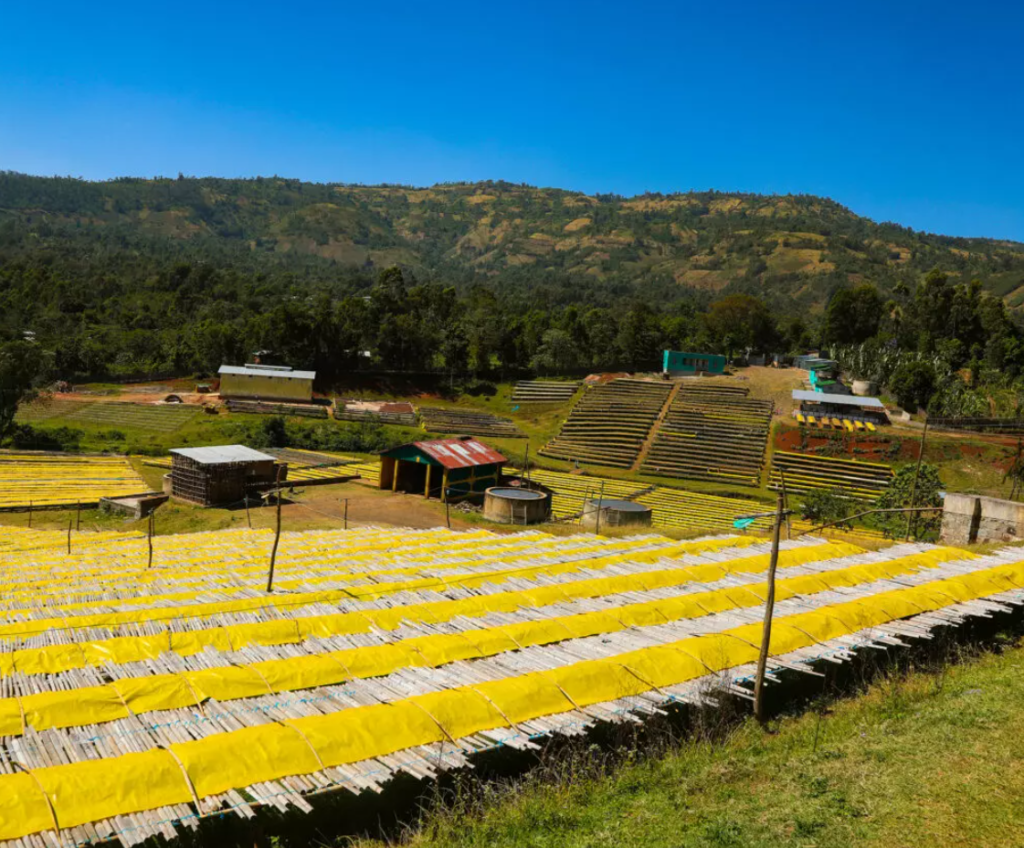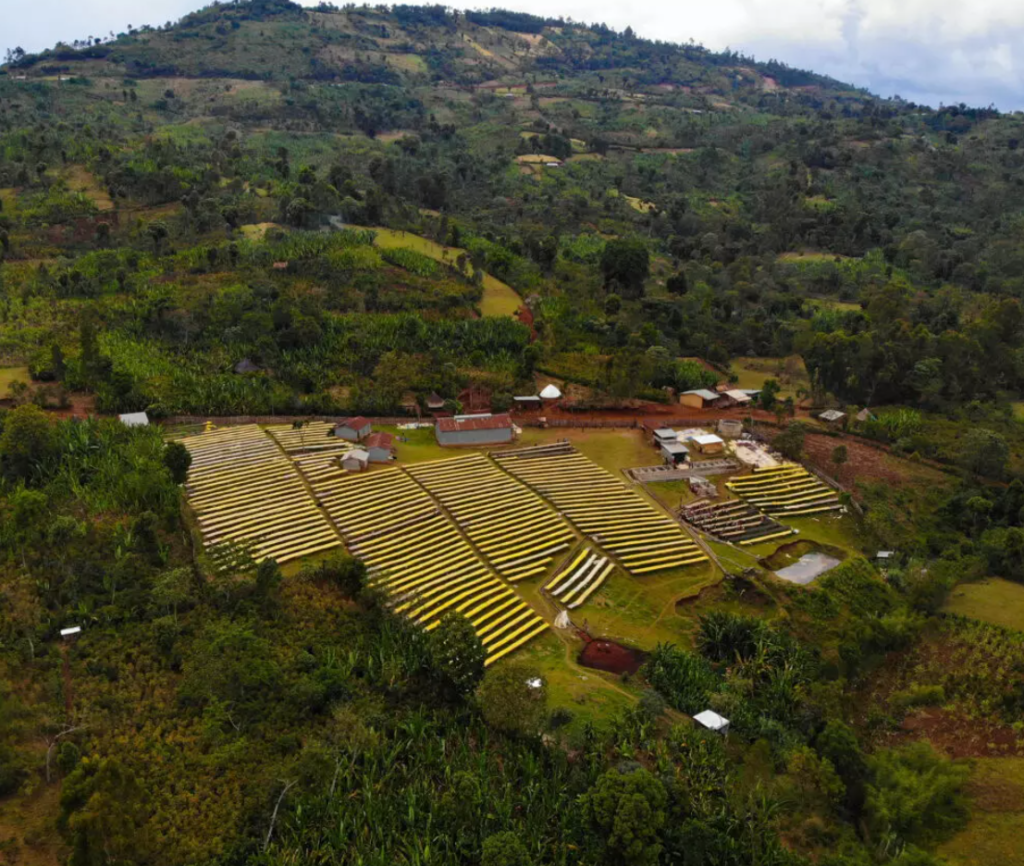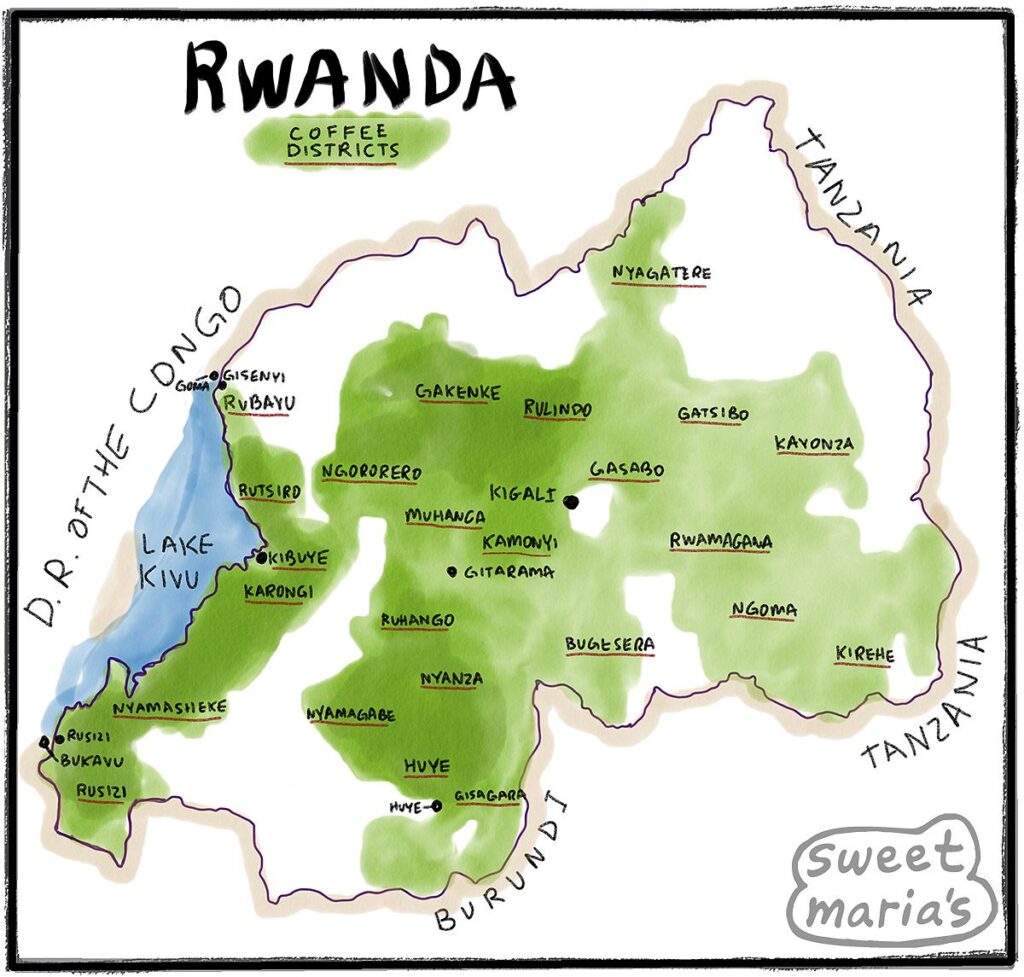
Rwandan Coffee: From Farmer to Fairtrade.
A Story of Hope (“Ikizere”), Vision (“Ikerokoza”), and Ishema (“Proud”)
Rwanda as a country, from my findings, is famously referred to as the “Land of a Thousand Hills”. Because of its breathtaking landscape, many of which are planted with delicate Rwandan coffee.
Africa’s most densely populated country grows some of the world’s best coffee, unfortunately oblivious to the farmers who look after these plants.
There have been some statements in various places where it has been stated that “many of the country’s coffee farmers (along with the rest of the population) have never even tasted a cup of coffee.”
Rwanda might be a major coffee producer, most Rwandans don’t enjoy the luxury of a daily cup themselves. Coffee prices hover around $2-3, a steep cost for a country where the majority lives on less than $2 a day.
This means Rwanda exports about 99% of its coffee beans.
The good thing is that the government sees an opportunity in the growing middle class and their rising disposable income, hoping to cultivate a taste for Rwandan coffee at home.
Coffee’s Dark History in Rwanda
Coffee arrived in Rwanda late. German missionaries introduced it in 1905, but it took 30 years for the industry to gain momentum.
Making matters worse, when Belgium took over from Germany after WWI, they forced Rwandan farmers to grow low-quality, high-yielding coffee beans.
Rwanda’s coffee industry was brought to a crashing halt in the 1994 genocide where many coffee farms were destroyed and the country’s infrastructure was awry.
The years that followed the genocide, The Rwandan government made efforts to rebuild their coffee industry, coming up with internal organisations such as PEARL, and US-AID, the international organisation that stepped in to revive the coffee industry in the coffee.
Aiding in developing new processing stations across the country, educating farmers in modern growing techniques and promoting Rwandan coffee to the international markets.
Rwandan Coffee Processing Method
One of the keys to Rwanda’s high-quality coffee is the “skin-drying tables.” These special drying beds allow workers to meticulously sort the wet parchment coffee.
They remove any imperfections, especially those easily spotted at this stage, like unripe beans, broken beans, or pieces of fruit. Removing these defects is crucial because they can negatively impact the coffee’s flavour.
Here’s why: fermenting coffee isn’t meant to add flavour; it removes the sticky fruit layer around the bean. But if a bean touches the ferment water through damaged skin, it can pick up unpleasant fermented flavours, ruining the entire cup.

Source: https://coffeehunter.com/our-origins/ethiopia/
This process is carried out in various “washing stations” across Rwanda.
Special facilities called washing stations clean coffee cherries, removing impurities and elevating the flavour of Rwandan coffee.
This not only improves quality, but also increases production, making these delicious beans more readily available for everyone.

Source: https://coffeehunter.com/our-origins/ethiopia/
Rwandan Coffee Growing Regions, Coffee Varietals, and Flavour Profiles
Growing Regions

Source: https://library.sweetmarias.com/coffee-producing-countries/africa/rwanda-coffee-overview/
Here are the top five coffee-producing regions in Rwanda:
Lake Kivu
[]Lake Kivu is the most abundant of Rwanda’s five coffee-producing regions. It lies right on the border with the Democratic Republic of the Congo at a high elevation of 1,500 masl. The rich volcanic soils and rolling green hills of the Lake Kivu region yield earthy, chocolaty coffees perfect for a dark roast.
The coffee here grows in Gisenyi, Nyamasheke, Kibuye, Cyanungu and Butare, accounting for the bulk of Rwanda’s production – a whopping 5,000 metric tons yearly.
Kizi Rift
Volcanic richness in Kizi Rift creates a perfectly balanced coffee. Expect a smooth, clean cup with hints of nuttiness and berries, all bursting with surprising flavour variations.
Virunga
Rich volcanic soil and cool mountain air (low oxygen) create a complex bean with bright acidity. Lighter roasts are ideal to showcase these unique flavours.
Muhazi
Rwanda’s volcanic soil, plentiful rain, and crystal-clear waters from Lake Muhazi combine to create a unique coffee growing environment. This blend then becomes the ideal grower’s location for Rwanda’s Bourbon Arabica plants, known for their large and colourful fruit.
Akagera
Akagera’s rolling hills and fertile soil create a unique coffee experience. Unlike Rwanda’s western regions, Akagera receives less rain and grows at lower altitudes. This results in earthier coffees with lower acidity, perfect for a dark roast.
Flavour Profiles
Rwanda’s “Land of a Thousand Hills” lives up to its name for coffee. High altitudes (1,200-2,000 metres) and unique, oxygen-thin conditions slow the ripening of coffee cherries like coffee beans grown in Northern Thailand. This creates denser beans packed with intense flavour and complex acidity. Volcanic soils, rich in minerals and nutrients, further contribute to Rwanda’s perfect coffee-growing environment.
According to Sweet Maria’s “… They often have clean bright flavours rivalling the best Central America coffees, more balance than Kenyas, attractive fruited sweetness, floral characteristics, and with a tea-like finish. …”
For a more detailed note on the flavour profiles of coffee beans grown from these various regions, visit here!
Closing Remarks on Our Cultural Exchange
Our journey through the world of coffee has taken us from the vibrant cafes of Colombia to the lush hills of Rwanda.
We’ve witnessed the incredible diversity of this beloved beverage, not just in flavour profiles, but in the rich cultures it fosters.
Coffee isn’t just a beverage; it’s a cultural cornerstone, sparking conversations, fueling economies, and offering a taste of a place’s soul.
Each cup represents not just a bean’s origin story, but the dedication and passion of people who cultivate, roast, and brew this beloved drink.
We’ve seen, investing in this versatile crop offers immense opportunities for both people and governments, promoting sustainable practices and empowering local communities.
As these diverse coffee cultures continue to thrive, they present exciting opportunities for economic development, cultural exchange, and a shared appreciation for the simple yet profound pleasure of a perfect cup.
-
1kg Kwararafa Light Roast | Vibrant & Fruity Nigerian Coffee (Ground or Whole Bean)
-
250g Kwararafa Light Roast | Vibrant & Fruity Nigerian Coffee (Ground or Whole Bean)
-
Buna Magic Mug
-
Chemex Combo: Brewing Perfection & Kwararafa Coffee (250gms)
-
Experience Clean Coffee Perfection: TGR 151 Chemex by Tigray Coffee Co.
-
Full Control, Full Flavor: TGR 171 French Press by Tigray Coffee Co.
-
Limited-Time! Save 15% – Tigray Moka Pot & Kwararafa Coffee Combo
-
Tigray Coffee Co. French Press & Coffee Combo: Unwind in Rich Flavor (250g)
-
Unlock Italian Coffee at Home: TGR 101 Moka Pot by Tigray Coffee Co.
- Rwandan Coffee: From Farmer to Fairtrade. - August 8, 2024
- The Rise of Coffee in Thailand - August 1, 2024
- Kenyan Coffee: From Colony to Connoisseur. - July 25, 2024



No Comments